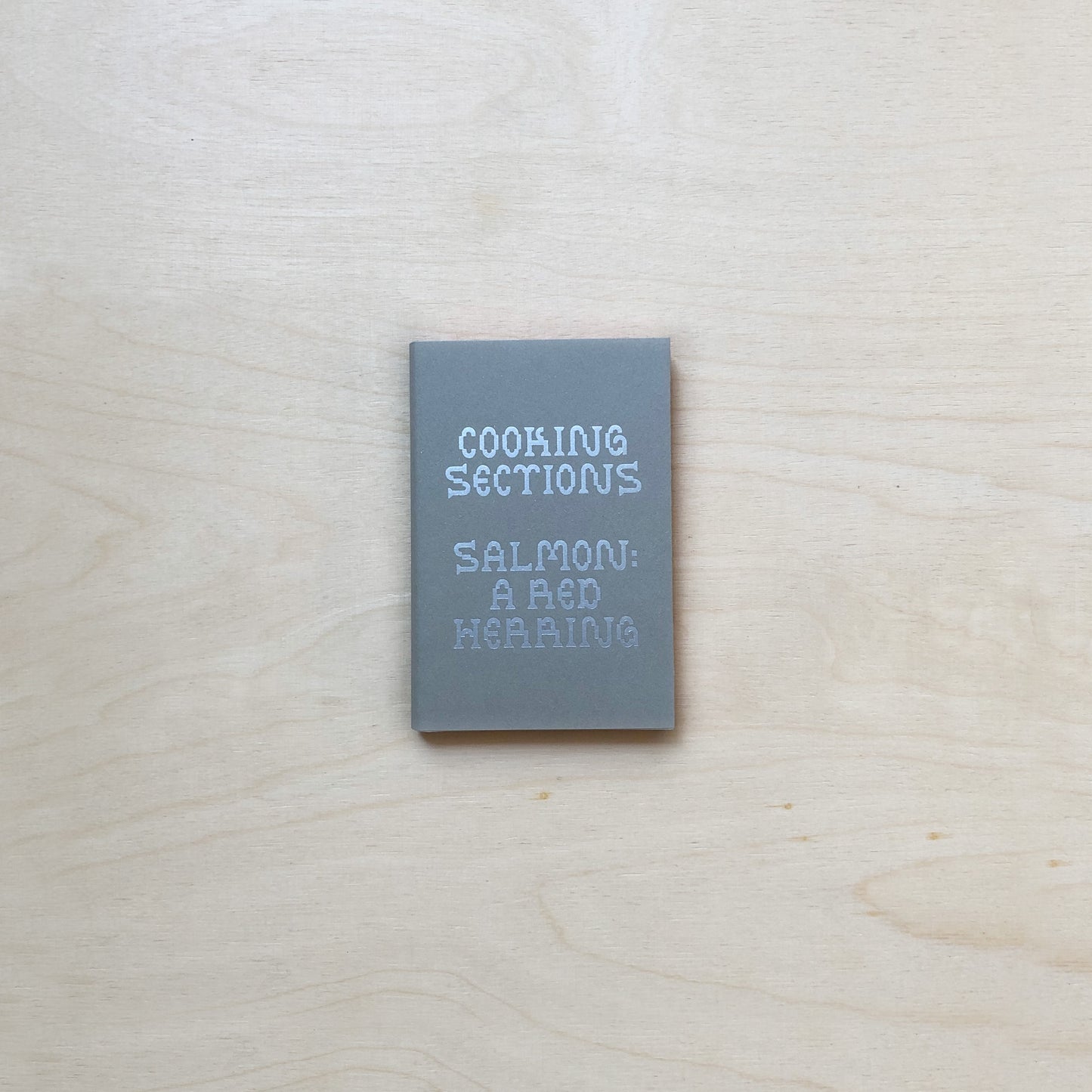Salmon: A Red Herring
Salmon: A Red Herring
Cooking Sections (Daniel Fernández Pascual and Alon Schwabe)
Isolarii
2020
9781735075006Softcover
11 x 7 x 1.5
176 pages
Verfügbarkeit für Abholungen konnte nicht geladen werden
Forewords by Hannah Landecker, Bruno Latour, Hans Ulrich Obrist and David Zilber.
SALMON: A RED HERRING traces the construction of salmon: the color of a wild fish, which is neither wild, nor fish (nor even salmon). In this highly original work, Cooking Sections show that disregarding color as a mere feature of matter risks taking life on Earth for granted. Color is a vector that composes forms, entwines species, and signals environmental changes. This book accounts for how we ended up in a deceptive world where sparrows molt pink, dogs turn blue, and honey glows maraschino red; where pharaohs tint paint, laptops flavor fog, and farms feed color.
***
About ISOLARII:
isolarii revive an extinct literary genre, the Renaissance "island books" of the same name. Together, they form an archipelago of today's avant-garde movements and figures.
The humanism of the past five hundred years is dead. Believing man was exceptional, it opened the abyss of extinction. A new approach is needed to re-enchant the world and establish the commonality of all life on Earth. This is not just the task of politics and philosophy. It requires the effort of all those who tear down convention in order to preserve what is meaningful. That is, the preservation not just of environments, but myth, irrationality, autonomy, and joy—whether by direct or poetic means. New islands—of thought, literature, art—are already emerging. They are the necessary minimum for this re-beginning. We find these points of orientation, mapping a scattered community that spans continents and disciplines. To represent a world of many worlds, not a globe.
Our books revive the extinct genre of the same name—the ‘island books’ that emerged at the start of the Renaissance. Bound together were poems, stories, and artworks—each a supposed island, a space that held a singular idea. Although this spatial form of literature was eclipsed by the novel, it continued to inspire writers from Thomas More to Georges Perec. As the historian George Tolias writes, isolarii “seem to reflect an ‘underground’ geographical culture...that flourished in the experimental and tolerant climate of the Renaissance but has now slipped out of our grasp.”
Six hundred years after the first isolarii were published, we take up this genre-bending format to navigate the turbulence of our times. Each book is a ready-to-hand island. Together, they are a growing archipelago. Islands from which to view the world anew.

